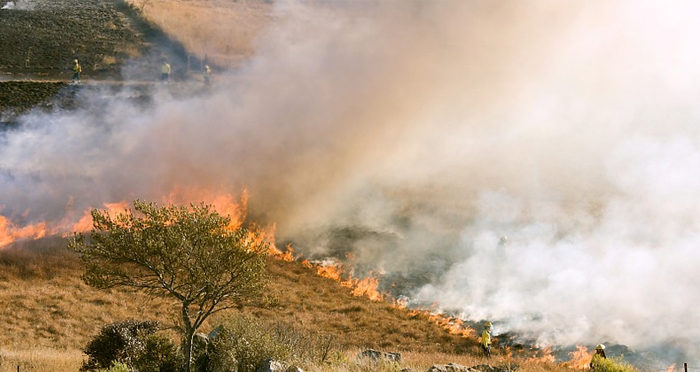Deschutes County Health Services advises residents to take health precautions during periods of smoke. Many factors influence a person’s sensitivity to smoke, including severity and duration of smoke exposure and a person’s health.
There are things you can do to minimize the impacts of smoke on you and your family:
· Reduce time spent outdoors when smoke is present.
· Use an indoor high-efficiency air filter (HEPA) or electrostatic precipitator in your home to help create one or more rooms with cleaner air to breathe.
· Set your A/C or heating unit to recycle or recirculate when at home or in your car.
· Stay hydrated. Drink plenty of water.
· Reduce other sources of indoor smoke and dust, including: burning cigarettes, candles, gas or propane ranges, wood burning stoves and furnaces, and vacuuming.
· Reduce the time you engage in vigorous outdoor activity.
· If you have heart or lung disease or respiratory illnesses such as asthma, follow your health care provider’s advice about prevention and treatment of symptoms.
· Consider maximizing time in air-conditioned homes or buildings during smoky periods or visit public, air-conditioned places such as libraries, community centers, senior centers, restaurants, and retailers for relief from smoke.
Smoke may worsen symptoms for people who have pre-existing health conditions and those who are particularly sensitive to air pollution. Contact your health care provider to develop a smoke plan. Sensitive groups include:
· Persons with asthma or other chronic respiratory diseases, such as COPD
· Persons with cardiovascular disease
· Persons 65 years of age or older
· Infants and children
· Pregnant women
· Smokers, especially those who have smoked for several years
For current information on air quality, visit https://oraqi.deq.state.or.us/home/map or use the 5-3-1 visibility index:
· If visibility is well over five miles, the air quality is generally good.
· Even if visibility is five miles away but generally hazy, air quality is moderate and beginning to deteriorate, and is generally healthy, except possibly for smoke sensitive persons. The general public should avoid prolonged exposure if conditions are smoky to the point where visibility is closer to the 5-mile range.
· If under five miles, the air quality is unhealthy for young children, adults over age 65, pregnant women, and people with heart and/or lung disease, asthma or other respiratory illness. These people should minimize outdoor activity.
· If under three miles, the air quality is unhealthy for everyone. Young children, adults over age 65, pregnant women, and people with heart and/or lung disease, asthma or other respiratory illness. These people should minimize outdoor activity.
· If under one mile, the air quality is unhealthy for everyone. Everyone should avoid all outdoor activities.
For current information on fires and how to protect your health, visit: www.centraloregonfire.org.



